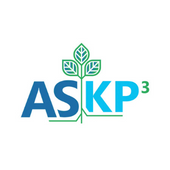Medication Management Psychiatrist
Jonathan A. Beatty, M.D. | Chestnut Hill
Nearly all people who seek help for an addiction end up on some sort of medication management plan. Medication management refers to a medical program overseen by a physician, who prescribes medications to help you with different aspects of your addiction. During medication management, you will have your dosages checked and be monitored for any side effects the medications may cause. It may be a short-term program to help you stop using drugs or alcohol, or it may be a more long-term program to treat underlying mental health conditions.
If you are dealing with an addiction to opioids or alcohol or are experiencing mental health symptoms, then a medication management plan may be right for you. Wave Treatment Centers in Chestnut Hill, PA can help you learn about how medication management can be used to address a substance abuse disorder and help treat any underlying mental health issues.
"Sometimes medication alone is all you need. While some degree of supportive psychotherapy is generally a part of every appointment, we may be able to identify and adjust medication changes in shorter appointments. This is often called a med-management appointment or a med check."
Dr. Jonathan Beatty, Founder
Start your healing journey
We will get back to you as soon as possible.
Please try again later.
Medication Management FAQ
Frequently Asked Questions
-
Who benefits from medication management?
Psychotherapy may not always address the biological aspects of addiction, depression, anxiety, or other mental health challenges. It is important to have a full medical evaluation to determine if prescribing medications to help your recovery is appropriate. Medication management is the ongoing evaluation and treatment of your symptoms through prescribing and adjusting the doses of medications.
One type of medication management program is medication-assisted treatment or MAT. This type of program uses medications to help either reduce or prevent the side effects of withdrawal and detox. Medication management is also utilized to treat the mental health issues that often go hand-in-hand with addiction, such as dual diagnosis symptoms.
Addiction treatment is an ongoing process, which means that the dosages for your medications may need to be adjusted over time. By having the oversight of a medical provider during a medication management program, you can have your medications adjusted as needed to ensure they are working properly to treat your symptoms.
-
What is medication-assisted treatment for opiate use disorder?
For people who are struggling with opioid addiction, the process of detoxing from drugs can be extremely unpleasant and difficult to deal with. Opioids are extremely addictive for many people and have a profoundly negative effect on both your brain and your body. Medication-assisted treatment for opioid addiction helps to reduce these symptoms, as well as helps to manage drug cravings.
Some of the medications most commonly used in opioid MAT include methadone, naltrexone, and buprenorphine. While some of these must be administered daily or every other day, slow-release varieties of naltrexone and buprenorphine are available, which only require a once-monthly dosage.
-
What is medication-assisted treatment for alcohol addiction?
While many people are able to drink alcohol socially for their entire lives without ever having a problem, others are not so lucky. Alcohol addiction can very quickly spin out of control, leading to the most severe kind, which is alcoholism. People with an alcohol addiction cannot control how much they drink and will only continue to drink more and more. The most severely addicted alcoholics are actually at risk of life-threatening side effects, like seizures and psychosis, if they try to stop drinking “cold turkey.” Medically assisted withdrawal (detox) may be required to reduce these risks safely.
Wave Treatment Centers can determine if outpatient detoxification from alcohol and other substances is safe. If it is, we can prescribe appropriate medication and ongoing monitoring to help lessen the risks of any side effects that occur. We also prescribe medications to help reduce cravings that can help a person maintain sobriety by either preventing them from getting drunk or making them have a negative reaction if they do drink. The most common medications used in alcohol MAT are acamprosate, disulfiram, and naltrexone.
-
What Is a co-occurring mental health disorder?
When someone has both an addiction and a mental health condition, they are said to have a co-occurring disorder. The most commonly seen mental health conditions at addiction rehab facilities are depression, anxiety, obsessive-compulsive disorder, mood disorders, attention-deficit/ hyperactivity disorder (ADHD), personality disorders, and schizophrenia.
An estimated fifty percent of all people with an addiction also have at least one mental health disorder. For some people, these issues existed before their addiction, and they used drugs or alcohol as a way to try and self-medicate their symptoms. For others, the way that addiction affects the brain leads to mental health issues. No matter how or when someone’s mental health issues arise, they only serve to complicate addiction further and make it more difficult to stop using.
-
What medications are used to treat co-occuring mental health disorders?
If you are diagnosed with a co-occurring disorder while in an addiction treatment program, you will most likely be prescribed medication to treat your symptoms as a part of a medication management program. The type of medication you receive will depend on your symptoms and medical history. Some of the most common options include:
- Anxiety Medication – Symptoms of anxiety can make people feel like they need drugs or alcohol in order to relax, but this only makes symptoms worse in the long term. An anxiety medication will help relieve your symptoms far more effectively.
- Antidepressants – As with anxiety disorders, those with depression may try to use substances in order to make their symptoms go away, but that only make them worse with time. There are many different antidepressants available, which give you a range of options to treat your symptoms if one type doesn’t give you the results you need.
- Antipsychotics – Antipsychotics are used to help people who are having, or have had, breaks with reality. This may be a result of certain addictions or withdrawal processes or can be from an underlying mental health condition. An antipsychotic will help you by reducing or eliminating these breaks.
- Mood Stabilizers – Most commonly used to treat the effects of bipolar disorder, mood stabilizers help to decrease abnormal activity in the brain. This means that you will feel more even and normal and be better able to focus on your recovery.
- Stimulants – Stimulants are typically prescribed to help reduce the symptoms of attention-deficit/hyperactivity disorder. These medications make it easier for people with ADHD to focus, think more clearly, and relieve anxiety.
-
Does insurance cover medication-assisted treatment?
While every insurance plan is different, your insurance company may offer coverage for a medication management plan.
If you are considering medication management as part of your treatment and recovery, our caring staff will help you determine what your options are for insurance or other payment plans.
Dr. Beatty has been absolutely amazing for my son over the last few years. He has helped our family so much.
Rochelle

CHESTNUT HILL
6 E. Willow Grove Ave.
Philadelphia, PA 19147
215-242-0420
PHILADELPHIA
407 South 10th Street
Philadelphia, PA 19147
215-242-0420
OFFICE HOURS
- Mon - Fri
- -
- Sat - Sun
- Closed











